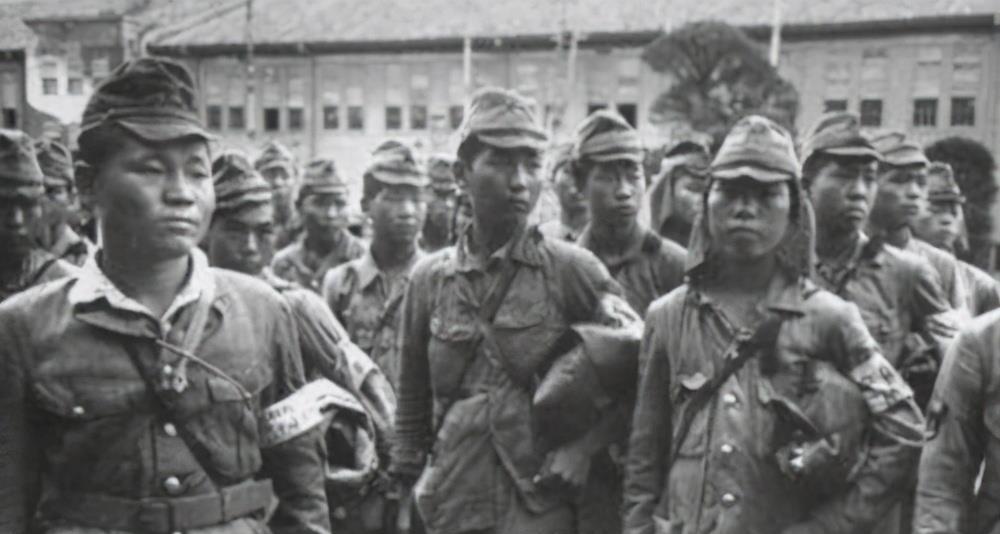The War of Resistance Against Japanese Aggression was an extremely arduous war of anti-aggression in Chinese history, in which the Chinese paid a terrible price in order to resist the aggression of Japanese imperialism. After the end of the War of Resistance, the Chinese did not carry out large-scale retaliation against the Japanese prisoners of war who had surrendered, and basically all the Japanese prisoners of war were sent back to their home countries. However, some Japanese people, instead of being grateful for the map, once again swung the butcher's knife at the kind Chinese people, and the Tonghua incident is a typical example.

Tonghua is a city on the border between China and North Korea, with the Yalu River to the south. Tonghua's military position is very important, here can enter the Songliao Plain, retreat can defend the Changbai Mountain, since ancient times has been a place of contention between soldiers and families. After the September 18 Incident, the Japanese stationed many officers and soldiers in this place, and General Yang Jingyu, commander of the First Army of the Northeast Anti-Japanese Coalition Army, was killed near Tonghua. At the end of the War of Resistance Against Japanese Aggression, when the Red Army attacked the Kwantung Army, the headquarters of the Kwantung Army and the capital of puppet Manchukuo were also moved to this place.
After the victory of the War of Resistance Against Japanese Aggression, the Eighth Route Army seized the northeast, and a certain unit of the Northeast Democratic Coalition Army, which was reorganized from a certain unit of the Eighth Route Army, was stationed in Tonghua. Subsequently, the Liaodong Provincial CPC Committee, the Tonghua Detachment of the Northeast Democratic Coalition Army, a certain unit of the Korean Volunteer Army, the Northeast Military and Political University, the Artillery School, the Aviation School, and other units also moved into Tonghua. However, at that time, the situation in Tonghua was not stable, and there were tens of thousands of bandits on the mountains outside Tonghua, and these bandits, under the instigation of Kuomintang agents, frequently attacked various major units in Tonghua City, posing a great threat to Tonghua, so the Northeast Democratic Coalition Army sent most of the troops out to suppress bandits, and there was not much armed force in the city.
The Kuomintang agents had always wanted to seize control of Tonghua, so they took advantage of the emptiness in the city and secretly colluded with tens of thousands of Japanese prisoners of war in the city, and finally they reached an agreement to jointly manage Tonghua after the success of the uprising. On the night of February 2, 1946, a few hours before the riots, a complacent agent leaked the situation, and the Northeast Democratic Coalition Army in the city quickly took action, executing hundreds of internal agents and kuomintang agent leaders, and ordering the main force of the Northeast Democratic Coalition Army outside the city and the Korean Volunteer Army to enter the city to support.
In the early morning of February 3, also the first day of the Chinese New Year of this year, before dawn, tens of thousands of Japanese troops in the city suddenly attacked, brandishing katana, wooden sticks, and a small number of small arms, and launched an attack on the Tonghua Administrative Office Building, the Tonghua Detachment Headquarters, the Artillery School, the Airport, the Telephone Bureau, and other units. Although our military forces first arranged for people to defend, due to the huge difference in numbers between the enemy and us, there was still some haste. At that time, when the Northeast Democratic Coalition Army entered the city, it incorporated the Field Hospital of the Japanese Army, and as a result, this hospital also participated in the riot, and the Japanese medical staff in the hospital killed all the wounded soldiers of our army.
Japanese prisoners of war once attacked the second floor of the administrative office building, but at a critical moment, the Tonghua Detachment of the Northeast Democratic Coalition Army and the Korean Volunteer Army arrived in time to quickly crush the Japanese army. The next morning, the troops carried out a large-scale search and arrest of the Japanese army, at that time there were tens of thousands of Japanese expatriates in Tonghua City, these Japanese expatriates pretended to be high and did not want to hang the Spring Festival in China's traditional festival, so at that time, all the families that did not hang the Spring Festival were searched, and all the adult Japanese men were taken out for examination, and if they resisted, they would be shot. On February 3, 1946, in just half a day, the Northeast Democratic United Army and the Korean Volunteer Army shot and killed more than 4,000 Japanese thugs.